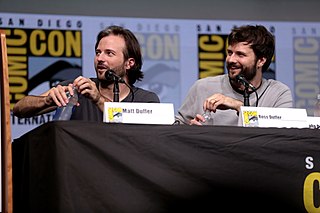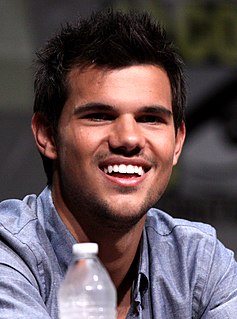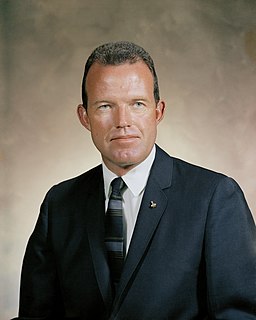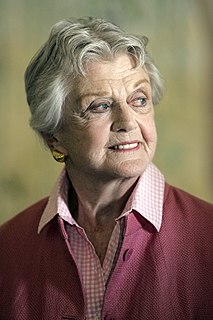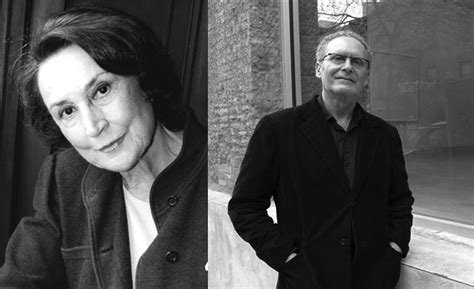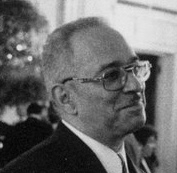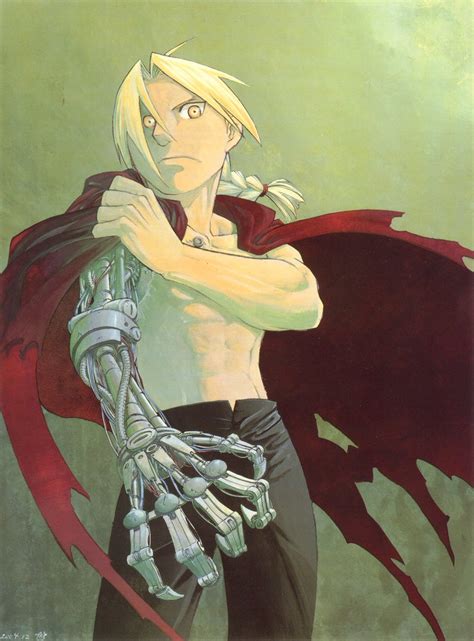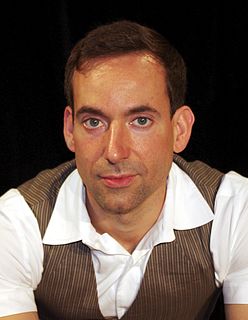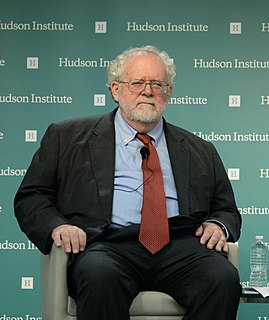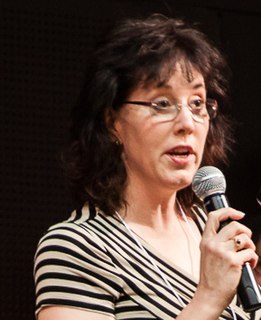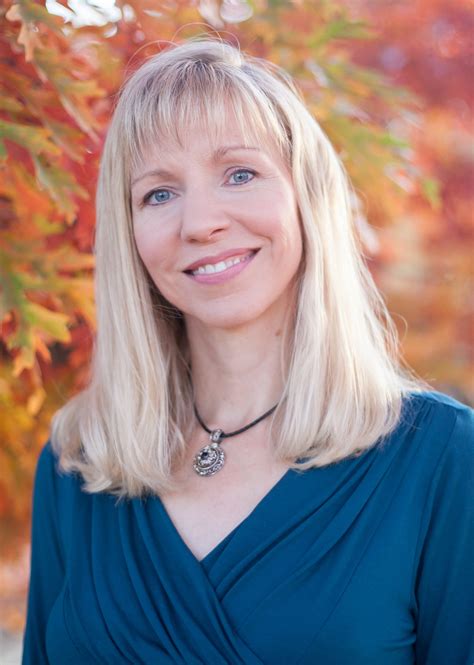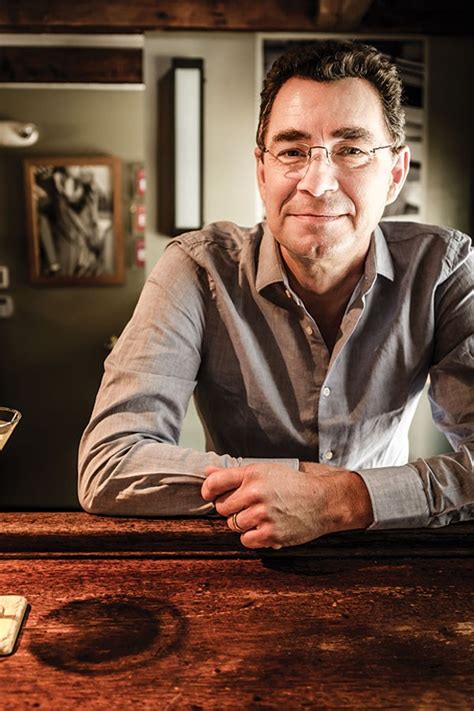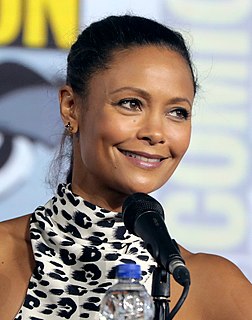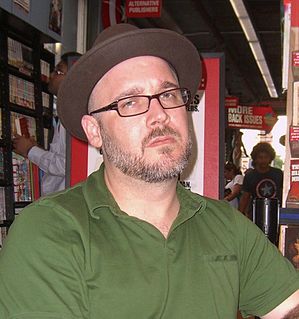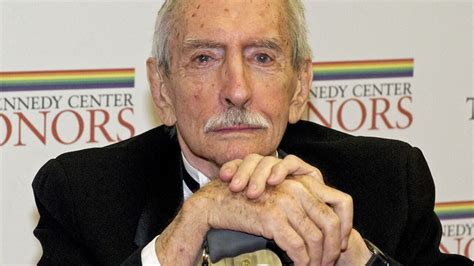Top 443 Edward Quotes & Sayings - Page 7
Explore popular Edward quotes.
Last updated on December 24, 2024.
It was Tim Burton's 'Batman' in, what, '89, I think? What we could see was there was someone behind the curtain controlling all of this, and you could see it from one Tim Burton film to the next, that the guy who made 'Edward Scissorhands' also made 'Batman.' You could connect the dots because his style was so distinct.
Filming 'Eclipse' - Eclipse was my favorite book so I was really excited to start filming the movie. I just love that it's the height of the love triangle. 'Twilight' develops Edward and Bella's relationship, 'New Moon' develops Jacob and Bella's and in 'Eclipse,' the three of them are physically together.
You're really not that good a mechanic, Edward. Maybe you should have Rosalie take a look at it tonight, just so you look good if Mike decides to let you help, you know. Not that it wouldn't be fun to watch his face if Rosalie showed up to help. But since Rosalie is supposed to be across the country attending college, I guess that's not the best idea. Too bad.
I think America is less safe on a lot fronts, and I disagree with the release of the information from Dianne Feinstein. I think she's as much a traitor to this country at this point as I thought about Edward Snowden and his release of information about other investigations and abilities from an intelligence standpoint.
The way everyone looked at me made me uncomfortable. Even Edward. It was like I had grown a hundred feet during the course of the morning. I tried to ignore the impressed looks, mostly keeping my eyes on Nessie’s sleeping face and Jacob’s unchanged expression. I would always be just Bella to him, and that was a relief. Bella Cullen, Breaking Dawn, Chapter 39, p.747
For a spy novelist like me, the Edward J. Snowden story has everything. A man driven by ego and idealism - can anyone ever distinguish the two? - leaves his job and his beautiful girlfriend behind. He must tell the world the Panopticon has arrived. His masters vow to punish him, and he heads for Moscow in a desperate search for refuge.
Edward and I had not had a last grand scene of farewell, nor did I plan one. To speak the word was to make it final. It would be the same as typing the words The End on the last page of a manuscript. So we did not say our goodbyes, and we stayed very close to each other, always touching. Whatever end found us, it would not find us separated.
While working with a camera crew supervising flight testing of advanced aircraft at Edward's Air Force Base, California, the camera crew filmed the landing of a strange disc object that flew in over their heads and landed on a dry lake nearby. A camera crewman approached the saucer, it rose up above the area and flew off at a speed faster than any known aircraft.
I didn't have any close relationship with him because, although [William Edward Burghardt] DuBois may not have been as egocentric - I don't know - he certainly was not the easiest person to approach. I think, certainly, those of us who were younger sort of respected that in terms of his preoccupation with deep thoughts. So, I made no effort to establish any relationship with him. However, he was in and out then.
My brother, Cecil Edward Chesterton, was born when I was about five years old; and, after a brief pause, began to argue. He continued to argue to the end. I am glad to think that through all those years we never stopped arguing; and we never once quarreled. Perhaps the principal objection to a quarrel is that it interrupts an argument.
A lot of fantasy names are too much. They’re too difficult to pronounce. I wanted the flavour of medieval England. I took actual names we still use today, like ‘Robert’, and in some case I tweaked them a little bit. I made ‘Edward’ into ‘Eddard’. If you look back at medieval times, no one knew how to spell their own names. There are a lot of variations that we’ve lost.
Roles came to me. I was very, very lucky in that respect. Great directors, great writers, great producers - they saw something in me that they wanted for their picture or their play or whatever it was, whether it was Edward Albee or whether it was - or Peter Hall, directors. They would come to me, thank God. I was lucky. Lucky, lucky, lucky.
I had an agent. When [Edward] Steichen was doing "The Family of Man", I went up to the office one day. I think Wayne Miller, who assisted Steichen with "The Family of Man," was up there and pulled out a bunch of pictures. So I got a message: "Take these pictures, call Steichen, make an appointment and take these pictures up there." And that's how I met him.
You never know what peace is until you walk on the shores or in the fields or along the winding red roads of Prince Edward Island in a summer twilight when the dew is falling and the old stars are peeping out and the sea keeps its mighty tryst with the little land it loves. You find your soul then. You realize that youth is not a vanished thing but something that dwells forever in the heart.
I opened with Edward Kienholz's The Beanery, and that's such a controversial piece that I think that brought people right away. It was a room-size work that one walked into. It was a bar with Kienholz-type figures sitting and drinking and talking - all life-size characters in a life-size setting. The exhibition was covered in Time, Newsweek, and Life, so it had huge recognition right away.
That is an editor. He is trying to think of a word. He props his feet on a chair, which is the editor's way; then he can think better. I do not care much for this one; his ears are not alike; still, editor suggests the sound of Edward, and he will do. I could make him better if I had a model, but I made this one from memory. But is no particular matter; they all look alike, anyway. They are conceited and troublesome, and don't pay enough.
Ew. Someone put the dog out, "Rosalie murmured wrinkling her nose. Have you herd this one, Psycho? how do a blond's brain cells die?" She didn't say anything. Well?" I asked."Do you know the punch line or not?" She looked pointedly at the TV and ignored me. Has she heard it?" I asked Edward. No." He answered. Awesome. So you'll enjoy this, bloodsucker--a blond's brain cells die alone.
It certainly woke me up to how vulnerable we all are. I think I was much more cavalier about it before I started working on the movie [Edward Snowden], and then the more I read the documents themselves and saw just how sweeping and indiscriminate the intrusions into our privacy have been, it made me more aware.
Don't tell me about heaven. What about in this life, that there is a better way, that this is not in vain, that it is not Edward Albee or Camus's absurd, the theater of the absurd, it is not Shakespeare - "full of sound and fury, signifying nothing" - that life has meaning and that God is still in control, and that God can, and God will, so people of goodwill, working hard, do something about the situation? We can change.
Directors who have inspired me include Billy Wilder, Federico Fellini, lngmar Bergman, John Ford, Orson Welles, Werner Herzog, Stanley Kubrick, Alfred Hitchcock, Francis Ford Coppola and Ernst Lubitsch. In art school, I studied painters like Edward Hopper, who used urban motifs, Franz Kafka is my favorite novelist. My approach to film stems from my art background, as I go beyond the story to the sub-conscious mood created by sound and images.
Hughes: (Talking for Mustang) 'I won't allow you to die under my jurisdiction because it'd be a pain to clean up the mess.' That's what he said. Edward: Fine. Tell him, 'Understood. I'll never die before you, colonel, you @#'$ idiot.' Hughes: Ha ha ha! They say the ruder you are, the luckier you are! In that case, you and Roy are gonna live forever!
I think there was a bit of brotherly love, but I think everything has a motive when you're king. It's all about maintaining that power - securing that power - and I think Edward was very skillful at doing that. I think he was a great king. Opinions are split, if you look at what he's done and written about him.
Neal stood, kicking free of the clinging curtain. "I'll kill you." I drew the firestar and pointed it at him. "I don't think so." "She is pack now," Sylvie said. "You fight one of us, and you fight all of us." Edward raised his eyebrows at me. "What is going on, Anita?" "I think I've been adopted," I said.
What, are you like Buffy or something? A vampire slayer?” I wish. “No, but my sister is. And my boyfriend’s a vampire so I know a lot about their kind.” Jayden shrinks back from me, wide-eyed. “No, no. He’s one of the good ones. Not all vampires are evil,” I assure him. “So…you’re dating…Edward Cullen.” “Sure, if you have to relate it all to a Stephenie Meyer book,” I grudgingly agree. “But don’t say that to Magnus’s face. He’s a card-carrying member of Team Jacob. Even has the T-shirt.
Edward Snowden's real "crime" is that he demonstrated how knowledge can be used to empower people, to get them to think as critically engaged citizens rather than assume that knowledge and education are merely about the learning of skills - a reductive concept that substitutes training for education and reinforces the flight from reason and the goose-stepping reflexes of an authoritarian mindset.
I guess we all feel like underdogs. I remember being a freshman at Brown University and not knowing what a WASP was. We were reading an Edward Albee play, and - it was just a moment of accepting, certainly that I wasn't very worldly, but also that a lot of the plays that I'd been reading, let's say other kinds of family plays, were speaking a foreign language.
Holding anger is a poison. It eats you from the inside. We think that hating is a weapon that attacks the person who harmed us. But hatred is a curved blade. And the harm we do, we do to ourselves. Forgive, Edward. Forgive...no one is born with anger. And when we die, the soul is freed of it. But now, here, in order to move on, you must understand why you felt what you did, and why you no longer need to feel it.' She touched his hand. 'You need to forgive your father.' ~pgs 141-142
Edward Said talks about Orientalism in very negative terms because it reflects the prejudices of the west towards the exotic east. But I was also having fun thinking of Orientalism as a genre like Cowboys and Indians is a genre – they’re not an accurate representation of the American west, they’re like a fairy tale genre.
When Edward Gibbon was writing about the fall of the Roman Empire in the late 18th century, he could argue that transportation hadn't changed since ancient times. An imperial messenger on the Roman roads could get from Rome to London even faster in A.D. 100 than in 1750. But by 1850, and even more obviously today, all of that has changed.
The only acceptable way to solve ecological problems is if you can persuade people to have fewer children. In the Victorian times, there were families of 15 children. Someone like Edward Lear, he was the last of 21 children. And so what we have to think about is offering people the alternative choice. And in the West, that's what's happening. The birth rate has been dropping steadily and still is. I'm wanting human beings to be better off so they don't view children as an insurance for the future.
Madame Bellwings, Memoir Elf Coordinator, was not at all pleased with this request, because elves who write the memoirs of teenage girls have the habit of returning to the magical realm with atrocious grammar. They can't seem to shake the phrases "watever" and "no way," and they insert the word like into so many sentences that the other elves start slapping them...and for no apparent reason occasionally call out the name Edward Cullen.
I would never believe it of you, my boy, regardless of the schemers your mother and sister turned out to be. You may not be the most clever boy, nor the most prudent, nor the most gentlemanlike, nor...Edward cleared his throat.Right! But you have a good heart, and I have every hope that with the proper education and mentoring you will be credit to the family yet.
And then, as the room went black, I was suddenly hyperaware that Edward was sitting less than an inch from me. I was stunned by the unexpected electricity that flowed through me, amazed that it was possible to be more aware of him than I already was. A crazy impulse to reach over and touch him, to stroke his perfect face just once in the darkness, nearly overwhelmed me. I crossed my arms tightly across my chest, my hands balling into fists. I was losing my mind.
In general-like not just in fiction but in life-it doesn't work out well when someone imagines someone else as a manic pixie dream girl or an Edward Cullen or anything other than a full, complex human being. That said, while I've tried to reflect that in my books, I don't think I've always succeeded, because I am always running up against my own insufficiencies and biases etc.
There's a lot of important issues being brought to the world about America's role in proliferating weapons, about the lack of responsibility of anyone in authority in this country, you have the torture program, that NSA surveillance is Edward Snowden's fault, just like proliferation of weapons is these kids' fault. It's ridiculous, there's never any consequences, there's never any lessons learned.
Men and women make their own beauty or their own ugliness. Sir Edward Bulwer Lytton speaks in one of his novels of a man "who was uglier than he had any business to be;" and, if we could but read it, every human being carries his life in his face, and is good-looking or the reverse as that life has been good or evil. On our features the fine chisels of thought and emotion are eternally at work.
I read the 'Twilight' books before the movie and the whole craze happened. And then I loved it. I was in love with Edward before every other girl that says she's in love with him was. Because I read them a long time ago shooting a movie in Salt Lake City, and one of Stephenie Meyer's friends said, 'Make sure you read my friend's book.'
Sophia shrieked and fainted on the ground – I screamed and instantly ran mad. We remained thus mutually deprived of our senses, some minutes, and on regaining them were deprived of them again. For an Hour and a Quarter did we continue in this unfortunate situation – Sophia fainting every moment and I running mad as often. At length a groan from the hapless Edward (who alone retained any share of life) restored us to ourselves.
The writing of solid, instructive stuff fortified by facts and figures is easy enough. There is no trouble in writing a scientific treatise on the folk-lore of Central China, or a statistical enquiry into the declining population of Prince Edward Island. But to write something out of one's own mind, worth reading for its own sake, is an arduous contrivance only to be achieved in fortunate moments, few and far in between. Personally, I would sooner have written Alice in Wonderland than the whole Encyclopedia Britannica.
In the case of drama (stage, movies, television ), there appear to be people in almost every audience who never quite fully realize that a play is a set of fictional, symbolic representations. An actor is one who symbolizes other people, real or imagined. [...] Also some years ago it was reported that when Edward G. Robinson, who used to play gangster roles with extraordinary vividness, visited Chicago, local hoodlums would telephone him at his hotel to pay their professional respects.
My children's favorite, and it's funny because they've seen it but they have a difficult time watching it because it's their dad and they make that connection, but Edward Scissorhands is by far my kids' favorite. They just connect with the character, and they see their dad feeling that isolation, that loneliness. He's a tragic character, so I think it's hard for them. They bawl.
We're in this amazing frontier of transparency. WikiLeaks. Edward Snowden. 'Westworld' is reflecting that with these robots gaining consciousness. Them coming into consciousness is almost like us, human beings, coming into the truth of the fact that government is corrupt. Police are corrupt. Banks are corrupt. Etcetera, etcetera.
[My photography teacher] gave me the Mexican Day Books of Edward Weston and just blew me away with this work. The fact that you could be this fabulous visual artist, with all this milieu of people like Diego Rivera and you could sleep with these gorgeous, amazing women, that you could live that life - that photography could deliver you that life.
The situation they [journalists and Edward Snowden] were in was incredibly heightened. The stakes were high. There was a lot of pressure, a lot of tension, a lot of sense of claustrophobic, clandestine energy that I think was exhilarating for us to explore and recreate. We were fortunate to shoot a fair amount of our stuff at the actual hotel where it all happened in Hong Kong. That added another element of very similitude to the situation, so I feel like it was exciting.
When you read the [Twilight series], it's like saying 'Edward Cullen is so beautiful I creamed myself'. I mean every line is like that. He's the most ridiculous person who's so amazing at everything. I think a lot of actors tried to play that aspect. I just couldn't do it. And the more I read the script, the more I hated this guy, so that's how I played him, as a manic-depressive who hates himself. Plus, he's a 108-year old virgin, so there's clearly some issues there
trust me, Anita, if you get dead, especially if he blames himself in any way, he will be a force of destruction looking for a place to be aimed. And he's blamed himself for introducing you to Olaf here from the get-go. If Olaf did to you what he's done to some of his other victims, Edward would drown the world in blood to erase those images.
In Fahrenheit 451, Ray Bradbury raised cautions against mass media, especially the television, which dumb down human sensibilities and coerce everybody's thoughts into a single uniform value, allowing human to forget the fundamental action of "having one's opinion". As a result, the society deteriorates. I decided to exhibit [Edward] Kienholz's work which features television as its subject, as well as the Big Double Cross as works that represent this warning.
Here is Edward Bear, coming downstairs now, bump, bump, bump, on the back of his head, behind Christopher Robin. It is, as far as he knows, the only way of coming downstairs, but sometimes he feels that there really is another way, if only he could stop bumping for a moment and think of it. And then he feels that perhaps there isn't.
The political vibe of late-'40s Hollywood through the mid-'50s is something we're seeing a lot of echoes of right now, and in a scary way, where I'm wishing for an Edward R. Murrow to stand up and start somehow calling people on stuff. But as far as the way the industry works, I feel like we're in a place where you see companies slowly moving back to only doing their own stuff.
The book [The Miraculous Journey of Edward Tulane] is about the fact that living in this world means that your heart is necessarily going to get broken. But the book also says that's okay. That's the only way to live a truly human life - with your heart getting broken - and eventually getting flooded with love.
Landscape pictures can offer us, I think, three verities: geography, autobiography, and metaphor. Geography is, if taken alone, sometimes boring, autobiography is frequently trivial, and metaphor can be dubious. But taken together, as in the best work of people like Alfred Stieglitz and Edward Weston, the three kinds of information strengthen each other and reinforce what we all work to keep intact - the affection for life.
Of course, we [ with Edward Herman] have a purpose: namely, to encourage readers to undertake what might be called "a course in intellectual self-defense," and to suggest ways to proceed; in other words, to help people undermine the dedicated efforts to "manufacture consent" and to turn them into passive objects rather than agents who control their own fate.
It was hilarious [last scene with Edward Cullen] considering we'd spent the entire series filming in the most miserable conditions, and then we end on the beach in the Caribbean filming for two days in the sea. That was fun. We literally did the last shot as the sun was coming up in St. Thomas in the Virgin Islands. It was a nice way to end it, because they were considering shooting it in the sea in Vancouver, which would not have worked at all.
But in the garden the sun still shone. The innumerable bees hummed. The scent of thyme hung on the air. But only the Natterjack was there to breathe the fragrant essence of it. He and the garden were waiting. They were waiting for more children. They didn't care how long they waited. They had all the time in the world. -The Time Garden, Edward Eager
In summary, she did jump off a cliff, but she wasn't trying to kill herself. Bella's all about the extreme sports these days." I flushed and turned my eyes straight ahead, looking after the dark shadow that I could no longer see. I could imagine what he was hearing in Alice's thoughts now. Near-drowings, stalking vampires, werewolf friends . . . "Hm," Edward said curtly, and the casual tone of his voice was gone.
